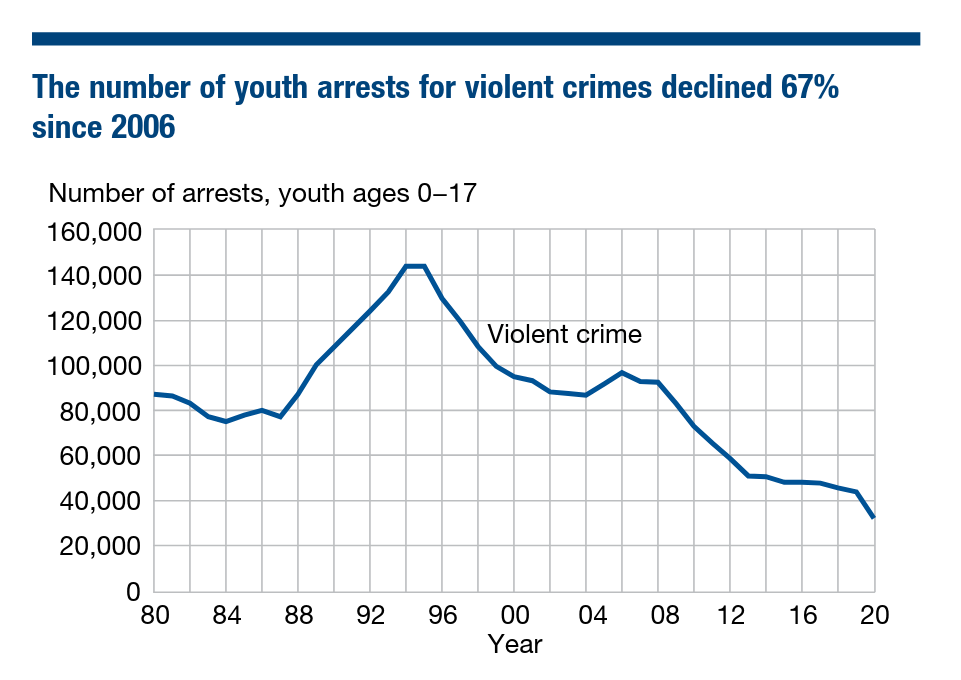They are not just gangs of kids anymore. They are often the kinds of kids that are called superpredators — no conscience, no empathy. We can talk about why they ended up that way, but first, we have to bring them to heel.
Hilary Clinton in 1996, about people roughly my age.
If Adolescence had been made a few years previously, it would have been against a backdrop of fear of video gaming. Or before that, rap music. Or before that, Dungeons and Dragons. Whatever it is that makes kids today more alarming and violent than kids of previous years. As they always are.

When I was 13, in 1989, many, if not most, 13 year old boys felt hatred and entitlement towards the bodies of their classmates that they perceived to be women. They were horrible little thugs.
They grew out of it.
Mostly.
So are we to believe that the 1980s was a more enlightened time for feminism for young teens? Or the 1970s, then? The 1990s? In exactly what year of pre-internet were boys respectful and well-behaved towards girls while seeing them as intellectual equals? One of the creators of Adolescence is trying to get phones taken away from kids, so there must be a year in which boys respected girls for their intellect, did not ever see them as meat, and in which students had equal opportunity across all genders. A year that we can return to, if only kids didn’t have phones!
Or not.
I do not mean to suggest that everything happening online is fine – far from it. But the same mobile phone and social media account that allows boys to access objectionable YouTube videos allows trans teens to find the community and support they need to keep going. So what can we change to prevent radicalisation into hatred without harming vulnerable youth?
Regulatory changes that might actually help
Automated, algorithmic news feeds take whatever demographic data they have and serve back what, statistically, the user will most likely interact with. Australian researchers found that for entirely blank profiles of “young men” – new email addresses of fictitious people – what those algorithms served back was intense misogyny. This is actually a problem. Keeping kids away from this until they turn 16, even if it were possible, would not meaningfully solve this problem.
A 17 year old boy being bombarded with sexism will still be impacted by it and, by extension, so will the girls and women around him. The solution is not to hide away intensely damaging content recommendation systems until people reach a threshold age, but to change legal regulation into how feeds are constructed and presented to people. Showing people things they’ve subscribed to in chronological order is fine. Showing them things we surmise they may like, based on algorithmic predictions. cannot be left out of human control.
It turns out that pandering to our basest instincts is not good for us. Computers cannot be held responsible, so nothing should happen with them without some human review. Not just for children, as everyone is vulnerable to radicalisation.
Indeed, YouTube’s radicalisation engine guides users towards more and more extreme versions of their interests. Someone who watches a video about jogging will be gradually lead down a path to ultramarathons. Running is innocuous enough, but the implications here with political content, sexism and health and wellness is highly concerning. My father might still be alive if he hadn’t started getting “health” information from YouTube. Again, children are only one category of vulnerable users. Information outlets, like libraries, used to curate their information.
I’m not suggesting that YouTube employ humans to look at every uploaded video, but their recommendation engine must be under human control. If it’s not vetted, it shouldn’t be pushed at us. Videos advocating for sexism could be made to be against the terms of service. They could be excluded from platform-provided recommendations. Google should have humans in the loop, to tie their brand identity to their curated lists. If they want to be the brand of sexism, they can be, but they need to have a human sign off on that and the rest of us can decide if we want our free time and our own videos associated with that.
What’s wrong with banning kids from social media?
Let’s start by talking about the impact on adult users of social media.
Right now, I can open a web browser and go sign up for a social media account with minimal fuss on a gigantic corporate network, or a tiny independent website. Usually, I have to give an email address, but I usually don’t need to supply a real name, a phone number or any other meaningfully traceable information.
This is valuable to me, because I may want to discuss a health problem anonymously, an identity I’m exploring, or anything else I’d rather that advertisers or bad actors not trace back to my actual home address.
If I wish to post to some of the amateur porn sites, however, I have to send them a picture of my face next to my passport so they can verify my identity. This has to be kept on file. This means that if upload a video that is not otherwise identifiable as me because of cropping or whatever, it’s still forever tied to my government ID. If the site gets hacked, all of my images could suddenly be very tied to my actual home address. These rules in most countries are only applied to adult content. It’s for age verification.
This is how age verification works in practice. If I wanted to make intimate videos, the de-anonymisation of age verification would be very likely to dissuade me. If this became required for all social media use, I would be also dissuaded if I was seeking help for an embarrassing or private medical condition. Or if I was exploring my gender identity, or trying to write heartfelt poetry about a girl who got away, or any number of things a person ought to be able to do with others without it being tied to their government ID.
Humans sometimes need to be able to access community anonymously. Because they’re dealing with addiction. Or they are questioning their gender or sexuality, and would be unsafe if some people in their lives learn of this; people seeking help trying to leave an abusive spouse or family member; anybody who wants or needs privacy. This isn’t all queers and people cheating on their wives – it’s also people who are in danger and are trying to get to safety. These are people we should support in a free country.
Meanwhile, kids under 16 are also sometimes trying to find out how to escape abuse; question their gender or sexuality; or just want and need some level of agency and privacy. There are things we should protect them from, but finding community and safety with others should not be on that list.
Good entertainment makes bad law
A lot of people like the massively overwrought series and I’m glad they found something they think is nice to watch. However, just because somebody is inspired by kitchen sink dramas does not mean that we should all lose significant freedom as a result. Especially the kids.
Bullying wasn’t invented with the internet. In 1988, “slam books” were made out of spiral notebooks, polaroids, glue and hatred. (I wasn’t popular enough to be allowed to look at them.) Unpleasant rumours, unkind judgements and even inappropriate photos weren’t invented yesterday.
What was invented yesterday were safe communication networks for agender furries.
Don’t take that away from them.




